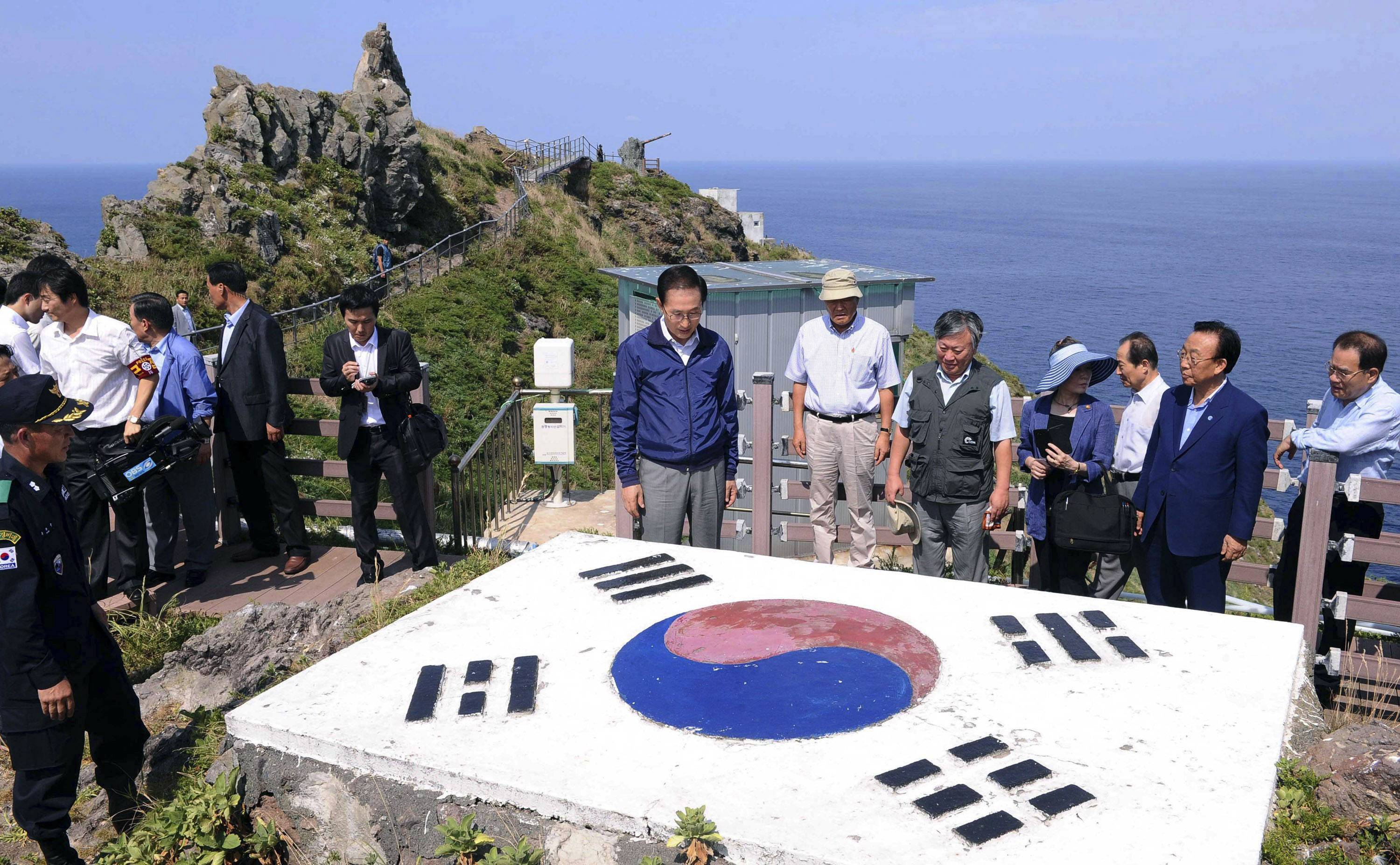As the adage goes, possession is nine-tenths of the law, though to my knowledge there is no law anywhere that codifies such an equation. The point is, if you actually hold something then it's going to be that much harder for someone else to take it, regardless of that person's claim of ownership. Right now, this idea bolsters South Korea's position in the conflict over who has sovereignty over an ocean outcropping called Takeshima by the Japanese and Dokdo by the Koreans, since the latter have occupied it exclusively for the last fifty years. Japan says that it officially claimed the islands in 1905, a process Koreans couldn't legally challenge at the time since that same year their country became a protectorate of Japan. The decades-long stalemate is occasionally interrupted by a war of words, but has not seriously affected diplomatic progress. Nevertheless, it's important to remember that Japan once colonized Korea. Old story? Sure, but that doesn't mean the stigma doesn't remain, so let's say Korea gets nine-tenths for possession plus an extra one-twentieth as sympathy bonus.
The latest flareup was occasioned by President Lee Myung Bak's visit to the islands on Aug. 10, which provoked Japan into recalling its ambassador and threatening to take the matter to the International Court of Justice. The Japanese press reacted as it always does, taking its government's claim at face value while urging "calm," lest the fragile detente forged since the end of World War II be "wrecked," as Tokyo Shimbun put it in an editorial. The Mainichi, while acknowledging that Korea has "practical control" over the islands, professed perplexity over such a careless move on Lee's part. The Yomiuri, calling Korea's occupation "illegal," despaired over the change in Lee's attitude from pragmatic to reckless. The tone of the analysis suggests on the one hand a child petulantly refusing to give up something to a playmate and on the other a man whose better nature has been co-opted by nefarious forces.
Such analysis obviates the need to study the conflict objectively since it implies Korea is carrying out an agenda dictated by short-term, emotionally charged impulses. As long as Japan keeps its head the matter will settle down, though that doesn't mean it will be resolved. Resolution requires genuine engagement. The Japanese media say that Lee visited the island in order to repair his reputation. His term is up in December, and due to a bribery scandal involving his brother his support rate has dropped, causing concern within his party. A boost of patriotic fervor stimulated by a visit to Dokdo was thus initially seen as a desperate move that had little to do with Japan.



